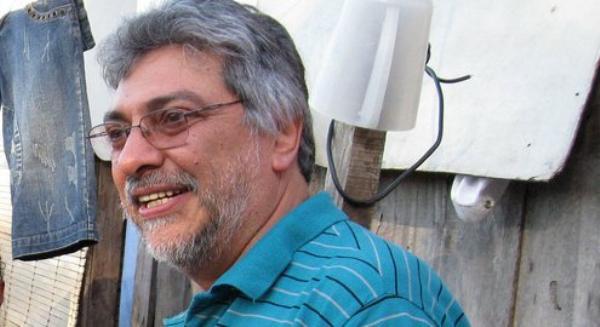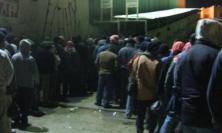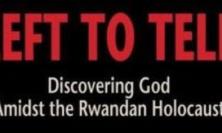In Paraguay, where Presidential elections are due in April, nomination papers were filed last week for a candidate regarded as having a real chance of unseating the governing Colorado Party after its 61 years in power – Fernando Lugo, a retired Catholic bishop. Alberto Luna SJ tells the story of this unusual candidacy and how it came about.
Paraguay is a land-locked country in the middle of South America covering 406,752 sq. km (157,006 sq.miles). Its population of six million is mostly of mixed Guarani Indian and Spanish descent, its economy mainly agricultural — arable and livestock. Access to the sea is via the two great rivers, the Paraná and the Paraguay, that divide the country into two large regions. The country is 90% Catholic, and the languages spoken are Guarani and Spanish. Paraguay has a presidential system of government, and in April 2008 elections for a new President are due. The unusual feature this time is that one of the candidates is a retired, well-known Catholic bishop, who having resigned from his ministry, has launched out into politics: Fernando Lugo.
Personal History
Fernando Lugo, born in 1951 in the south of Paraguay, comes from a family actively involved in politics. His parents were persecuted under the dictatorship of Alfredo Stroessner, who ruled the country with a rod of iron until February 1989.
In 1970 Fernando Lugo joined the novitiate of the Divine Word Missionaries, was ordained priest in 1977, and spent five years outside Paraguay as a missionary in Ecuador. He returned to his homeland to assist in the formation of young religious, but also spent some time in Rome, studying with the Jesuits at the Gregorian University, where he gained a degree in Sociology and the Church's Social Teaching.
In 1992 he was elected Provincial Superior of the Divine Word Fathers in Paraguay, and in 1994 was ordained bishop of the Diocese of San Pedro Apóstol.
Close To The Poor
The Diocese of San Pedro, established in 1978, lies to the north of the eastern region in one of the poorest parts of the country. Covering 20,000 sq.km, it has a population of 350,000, mainly campesinos (farmworkers). Guarani speaking, the people live mainly in asentamientos, small villages with practically no public services. On arrival there, the new bishop had ten diocesan priests to serve more than twenty far-flung parishes spread across a huge area served by very poor roads.
In these agricultural communities the system adopted for religious organization was that of “base communities”: they combined communal reflection on the word of God with social work and their agricultural work together. Such a method, marked by personal involvement and a critical approach, sought to find practical solutions to communal problems; it encouraged active participation by the campesinos as they struggled constantly to improve their living conditions. With support from the clergy, secular and religious, as well as from the bishop, these base communities came to be an important element that played a key role in both local and national life; they were recognized as tireless supporters of the struggles of the campesinos.
Struggle For The Land
Among the claims of the campesinos one of the most important concerned land reform, which would allow working families the right to settle on their own land. As the government failed to reply to these demands, the campesinos began a process of “squatting” on the land, installing asentamientos campesinos (“farming communes”) with their families and cultivating the land. This was to bring pressure on the government to restrict large-scale properties, indemnifying the owners, and establishing the legal rights to the workers. In the 90s, after the fall of the dictatorship and the transition to democracy, with new and more tolerant governments, this process became more frequent, with considerable conflict, and several of the campesino leaders were assassinated or imprisoned.
Eventually greater attention began to be paid, at both the local and national level, to this movement of the agricultural community, and more and more voices were heard demanding land reform and the appropriate legislation.
An outstanding figure in the development of such currents was Bishop Lugo, prominent in the press, in local marches and in national demonstrations. His support for the claims and protests of the campesinos made him an important advocate for their cause within the ecclesiastical hierarchy. This won him the favour of many, but also the rejection of others.
Liberation Theology
Lugo himself was known to be a supporter of Liberation Theology, and he was linked to Catholic groups and other organisations, both in Paraguay and in other parts of Latin America, who shared the same ideas about the Church’s commitment to the struggles of the poor.
On several occasions accusations were made against him of giving support to radical left-wing movements, and even of being involved in the organization of guerrilla attacks, including kidnappings, but all this remained in the realm of rumour and without proof. In fact, the few guerrilla incidents that occurred in Paraguay never came to anything.
During his final years as bishop, Lugo decided to withdraw his diocesan priestly candidates from the major National Seminary, in Asunción, and an attempt was made to organize a local seminary that would allow the young men to have direct contact with the life of the local campesinos, so that they were even expected to work in the fields for their living. However, perhaps because of the lack of suitable formation directors, all the candidates eventually left.
Early Retirement
In 2004, to the general surprise of all, Bishop Lugo submitted his resignation to Pope John Paul II, although he had not yet reached the statutory retirement age of 75 required by canon law. Reasons of health were given to, and accepted by, the Vatican, as justifying his inability to continue carrying the responsibility for the diocese, but not many found them convincing.
Some thought that the more conservative sectors of the Church had imposed this “sanction” to restrain the “progressive” activities of the bishop, while others suggested that Lugo had felt under too much pressure from the accusations levelled against him. It soon became clear that Lugo himself had initiated his retirement. He returned to work within his religious congregation, which put him in charge of a college of secondary education in the country’s capital.
Civil Resistance
The President of Paraguay, Nicanor Duarte Frutos, had started to speak of holding a referendum to reform the Constitution in a way that would allow his re-election as President. Early in 2006, various opposition groups, made up of political parties, other organisations and religious groups, began to organize a form of “civil resistance” to this reform and to other legislative changes proposed by the President.
Retired Bishop Lugo gradually began to appear as a figure capable of attracting the various disparate elements of opposition, who had so far failed to find an agreed common spokesman — someone who could work effectively against the proposed presidential reforms. He was invited to lead a civil resistance march, and he accepted.
On 29th March 2006, one of the most impressive demonstrations of civil opposition ever to take place in recent years in Paraguay was held in the main square of Asunción. More than forty thousand people, coming from all the different sections of society, marched in a united front to protest against the demands of the president. Lugo played a key role in summoning this particular demonstration, and others were to follow, including one centred on the massive building of the Palacio de Justicia in Asunción, which was completely surrounded by a human chain.
Lugo For President
It had become clear that the ex-bishop was someone capable of uniting the different strands of political opposition — which, at the previous elections had been unable to combine and defeat the official government party, the Colorado Party, that had held power for more than sixty years.
It was the leader of a new opposition political party, the Patria Querida Party, Pedro Fadul, who asked Lugo to organize a coalition or pact (concertación) between all the opposition parties, trade union and other groupings and dissatisfied elements of the governing party. The plan was to form around Lugo a united bloc that could defeat the Colorado Party in the elections due in April 2008.
Lugo bided his time, wanting to consider his decision, and controversy broke out — sending rivers of ink flying in various directions — as different arguments for and against, both within and without the Church, were debated. Finally at Christmas 2006, Lugo agreed to stand as a presidential candidate, acting in the name of a coalition between the opposition parties. He made this public in a simple ceremony held in front of his family's home in Encarnación, a city in the South of Paraguay.
Constitutional Obstacles
However, the Paraguayan constitution prohibits "ministers of religion" from becoming presidential candidates, and controversy raged as to whether an ex-bishop, even if retired, was still a "minister of religion".
In order to smooth his path by recourse to ecclesiastical law, Lugo requested permission from the Vatican to devote himself to politics. This permission was not granted – indeed Lugo was suspended from his ministry as bishop and priest, preventing him from licitly exercising his religious ministry, but not removing his episcopal character, which in the context of Catholic theology is considered to be indelible.
This suspension failed to stem the controversy between those who asserted that he was still a minister of religion, and those — among them some distinguished jurists in both canon and civil law — who claimed that he was a valid candidate due to his retirement as bishop, and also to his suspension from active ministry, adding that the law of the state of Paraguay had no obligations with respect to a law of the Church of Rome.
Popular Assemblies For Dialogue
Meanwhile, Lugo had launched an unusual political campaign based on popular “assemblies for dialogue”. Instead of the usual political meetings with their fiery speeches, the assemblies took place around a table, at which people could express their worries and needs, which were listened to and noted.
Starting a citizens’ movement, dubbed “Tekojoja” (justice), Lugo made great use of these popular meetings, while at the same time he continued the negotiations needed to forge an agreement between all the opposition parties with a view to the elections of 2008.
On the ideological front, Lugo adopted a “centrist” position, taking as his symbol the Paraguayan poncho, the simple peasant's cloak with a hole for the head.
Already political polls were showing Lugo well ahead among the various candidates for the coming elections, causing great tension in the government party, who recocnised in him a front-line enemy and a real threat to their ambitions to remain in power. Lugo became a member of the Christian Democrat Party, one of several parties who had joined his coalition, giving him a political platform from which to present himself as a presidential candidate.
Divide And Conquer
As the process of building up a coalition between the opposition parties developed, problems appeared; these crystallised, not around specific governmental policies, but around the selection of a Vice-Presidential candidate for Lugo. The Patria Querida Party, which had been the original driving force behind forming the coalition, pulled out of the group, claiming that the previously agreed norms for taking decisions had not been respected.
The government party, rather like a drowning man clinging to any plank available, made use of this temporary setback by trying to break up the coalition still further, resorting to legal subtleties: a pardon was granted to the former General, Lino César Oviedo, serving a ten-year prison sentence for previously organizing a coup d'etat, and he was declared a valid candidate for the elections of 2008. His party, which had taken part in the coalition, has since broken away and started its own campaign.
After all of this, Lugo remains at the head of a much diminished coalition: the leading opposition party of this group, the Radical Authentic Liberal Party, has taken the decision to support his candidacy and chosen a candidate for Vice-President to stand with Lugo.
More recently, the Colorado Party has surprised many by nominating a woman, former education minister Blanca Ovelar, as its Presidential candidate, who is already painting herself as an outsider and a force for change “in a clearly macho country”.
Recent polls show very clearly how divided public opinion has now become. They do not rate Lugo’s chances quite so highly now, but he remains one of the principal candidates.
The Catholic Hierarchy
Officially the Episcopal Conference of Paraguay has given no support to Fernando Lugo in any of these initiatives. Nevertheless great differences, some openly expressed, have appeared among the bishops: while some have spoken out against his incursion into party politics, others have defended his decisions, claiming that he is providing much-needed help to a country which, at this particular juncture of its history, is notably bereft of leadership that can help solve its critical social problems. A similar difference of opinion is to be found among the clergy, members of religious orders and the laity.
Hoping For Better Times
Paraguay is certainly hoping for better times. It forms an integral part of Mercosur (the South American “Common Market”) and is surrounded by such powerful neighbours as Brazil and Argentina. But it needs to develop a more solid policy of development if it is to avoid stagnation, and in the area of global politics a firm diplomatic policy must be found to defend its interests in joint ventures with multinationals like ITAIPU and YASYRETA, the hydro-electric companies which tend to favour Brazil and Argentina respectively.
Recent indications from neighbouring governments seem to favour a policy of no change; Brazil and Argentina have no interest in a different style of government taking over in Paraguay, which is another way of saying that they do not want the basic relationships which already exist — and which are in their favour — undergoing any realignment.
Meanwhile, the population of Paraguay witnesses an ever-growing level of emigration abroad, ever-diminishing likelihood of development, minimal investment in education and health, increasing destruction of natural resources, and a governing party which is more preoccupied with defending its own interests and staying in power — a power that it has not known how to use for the good of the majority.
For many, Lugo seems to be the only person who could break with the policy of no change, and open the road to a new way of doing politics for the benefit of the people.
Pa'i Alberto Luna is a Jesuit from Paraguay who works with young people. He writes poems in Spanish and Guarani, the language of the ancient Jesuits Reductions in South America.






